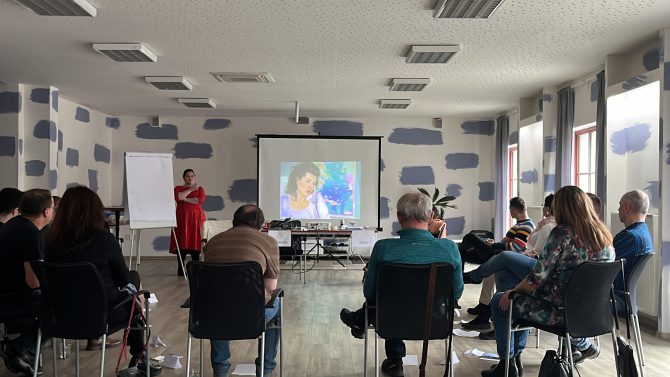New Service at the Škoda Palace: Contact Point for Foreigners
source: praha.eu Since mid-July, a new Contact Point for Foreigners – ICP has been operating…
More

In the next two years, a total of 800 civil servants, police officers and firefighters will receive a special training by the Slovo 21 association. It will help the public administration and law enforcement personnel improve their communication skills when working with third country nationals. Thanks to experiential interactive activities, the participants of the workshop will, for example, find themselves in situations that migrants commonly experience when dealing with authorities or the police. Better communication leads to less misunderstanding.
The Strengthening Intercultural Competences Project responds to the increasing number of foreigners in Czechia. According to data from the Ministry of the Interior, by the end of 2023 there were 836 thousand people from a different cultural background. At some point, they will need to communicate with Czech authorities. However, their employees often lack appropriate training in intercultural and communication skills, which may have a negative impact on their work and their attitude towards foreigners. That is why Slovo 21 came up with the concept of a two-day interactive training.
‘Our main aim is to make it easier for public administration and local authorities’ staff to work with foreigners. We want to help then understand some cultural differences and explain that the way foreigners behave is sometimes caused simply by the fact that their culture is different,” explains Kateřina Kopečná, the project’s methodologist. The training is intended for employees of the Police of the Czech Republic, the Fire and Rescue Service, the Labour Office, the Asylum and Migration Policy Department of the Ministry of the Interior, the Ministry of Labour and Social Affairs and the State Labour Inspection Office.
The two-day workshop is not just plain information and theoretical lectures, it also includes experiential and interactive activities thanks to which the participants appear in a situation typical for foreigners. By switching roles, they have the opportunity to experience model situations through the eyes of migrants. The training, accredited by the Ministry of Labour and Social Affairs, must respond to the needs of the participants, which are naturally different based on their type of work. ‘Different groups of employees need to acquire different information and knowledge. That’s why we always try and tailor the training to their specific needs. They play an active role in the programme – at the beginning they express their expectations, thus shaping the content of the workshop activities,’ explains Kopečná.
Slovo 21 has been training officials in intercultural competences since 2011. Until now, almost 1.300 people have been trained in special workshops. Feedback shows that they found the training useful. Above all, they appreciated the information about why foreigners behave the way they do. They are also grateful for the advice on how to talk to migrants while maintaining dignity and mutual respect for both sides.
source: praha.eu Since mid-July, a new Contact Point for Foreigners – ICP has been operating…
MoreAs of 1st June 2025, a flexible amendment to the Labour Code has come into…
Moresource: praha.eu Since mid-July, a new Contact Point for Foreigners – ICP has been operating…
MoreAs of 1st June 2025, a flexible amendment to the Labour Code has come into…
More